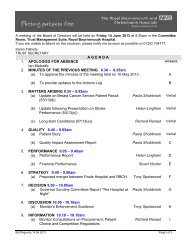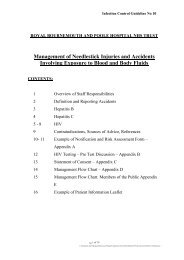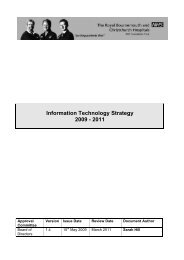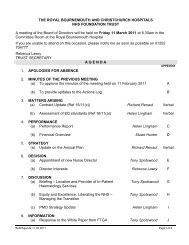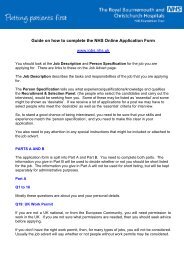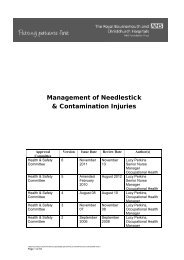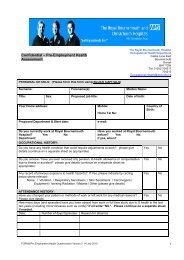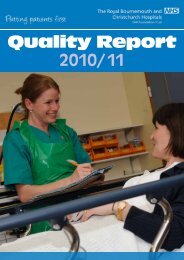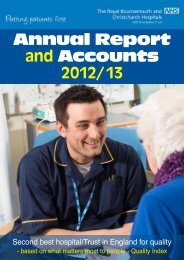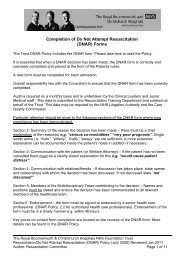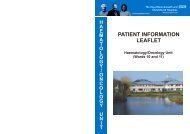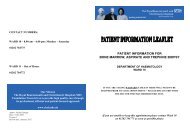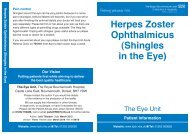View June's Board Pack - Royal Bournemouth Hospital
View June's Board Pack - Royal Bournemouth Hospital
View June's Board Pack - Royal Bournemouth Hospital
- No tags were found...
You also want an ePaper? Increase the reach of your titles
YUMPU automatically turns print PDFs into web optimized ePapers that Google loves.
Detailed reportIntroduction22 The Payment by Results (PbR) Data Assurance programme (theprogramme), commissioned by the Department of Health (DH), is designedto support the improvement of data quality that underpins the accuracy ofcoding and payment. The programme, which is being delivered as part ofPCT audits in 2010/11, is a rolling programme of work developed andmanaged by the Audit Commission, and is delivered by accredited clinicalcoder auditors.23 The programme is now in its fourth year and the inpatient audit hasbeen extended to include audits of Independent Sector providers, as well asNHS Trusts carrying out work under contract to PCTs. Other aspects of theprogramme include:■ reviewing the quality of costing information at all acute trusts in 2010/11,including assessing the accuracy of activity and costing data used bymany PCTs for local pricing and contracting of non-PbR activity. It willalso provide some assurance over the accuracy of national tariffs giventhat reference costs are the basis of most tariffs;■ national reporting and analysis from the audit programme, includingpublication of results and comparative briefings for all SHAs, PCTs andtrusts;■ developing the PbR National Benchmarker online tool, used extensivelyby the NHS;■ following up outpatient arrangements at 30 NHS trusts based on theresults from our work; and■ piloting and reporting extensions to the coverage of the programme,such as our work with independent sector providers and on Accidentand Emergency (A&E).24 Since the start of the full programme in 2007/08, we have audited over£200 million of payments and identified approximately £9 million of financialerrors due to clinical coding errors. The HRG error rate has fallen since thestart of the programme, though increased from 2008/09 to 2009/10 mainlydue to the introduction of HRG4 - for more information see our 2010/11national report. The average HRG error rate in 2009/10 was 9.1 per cent.The accuracy of clinical coding, measured using procedure and diagnosiserror rates is improving year-on-year - from an average of 16 per cent to 11per cent in 2009/10.25 The quality of the data underpinning PbR has wider implications for theNHS as this information is used in all aspects of the service to determinehow and where care is delivered. The clinical coding data that is auditedhere is used for service planning and monitoring; commissioning andepidemiology; research; clinical audit; consultant job planning; patient safetyAudit Commission Payment by results data assurance framework 7



